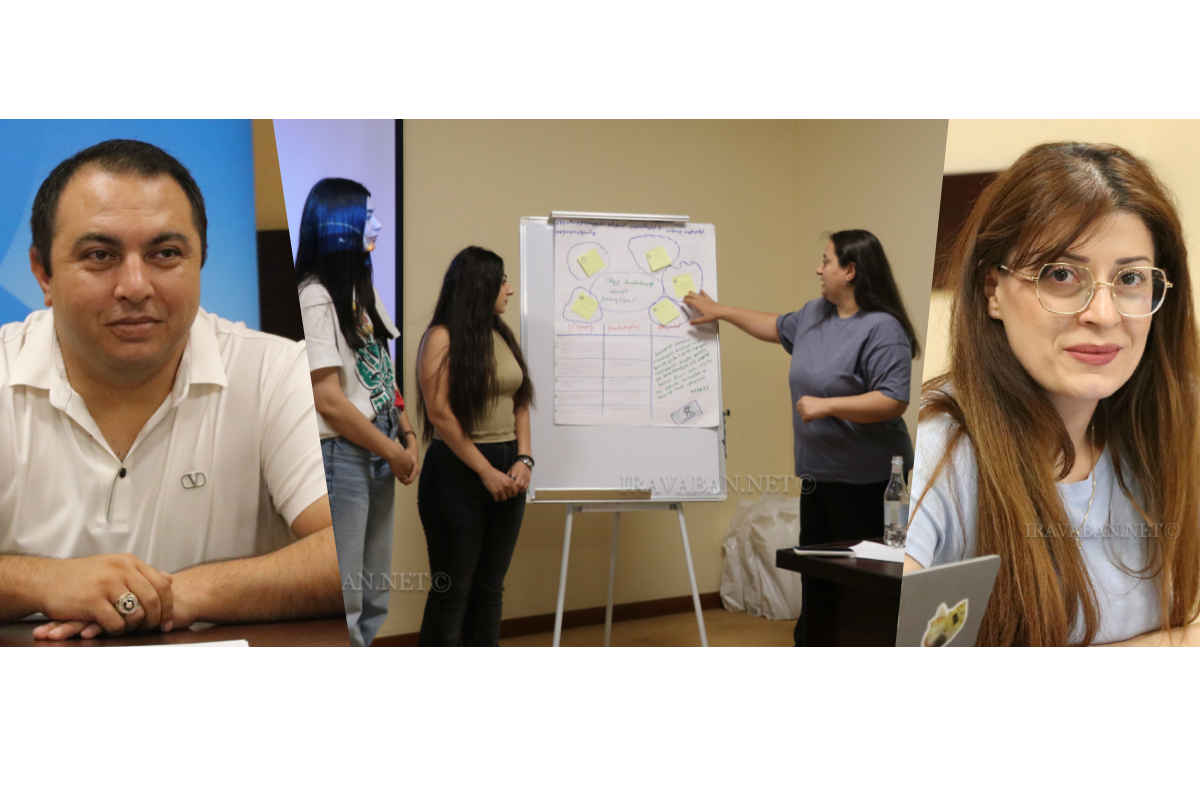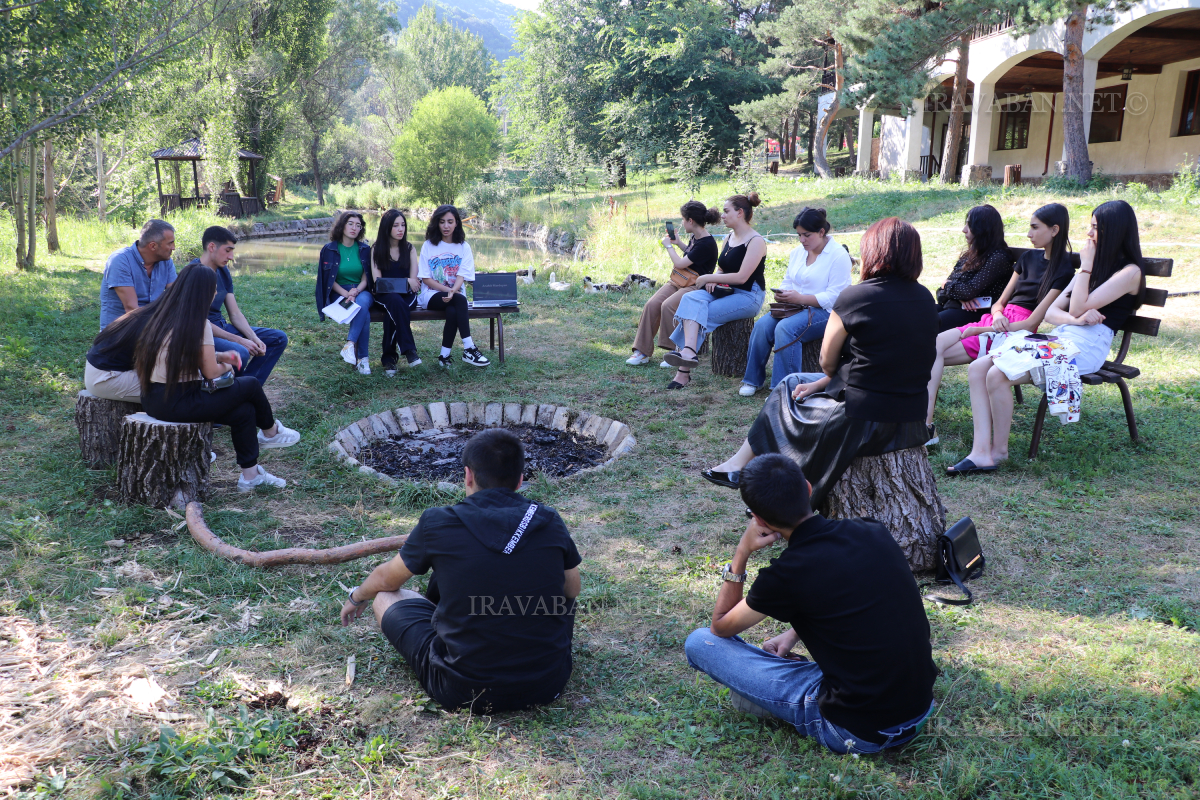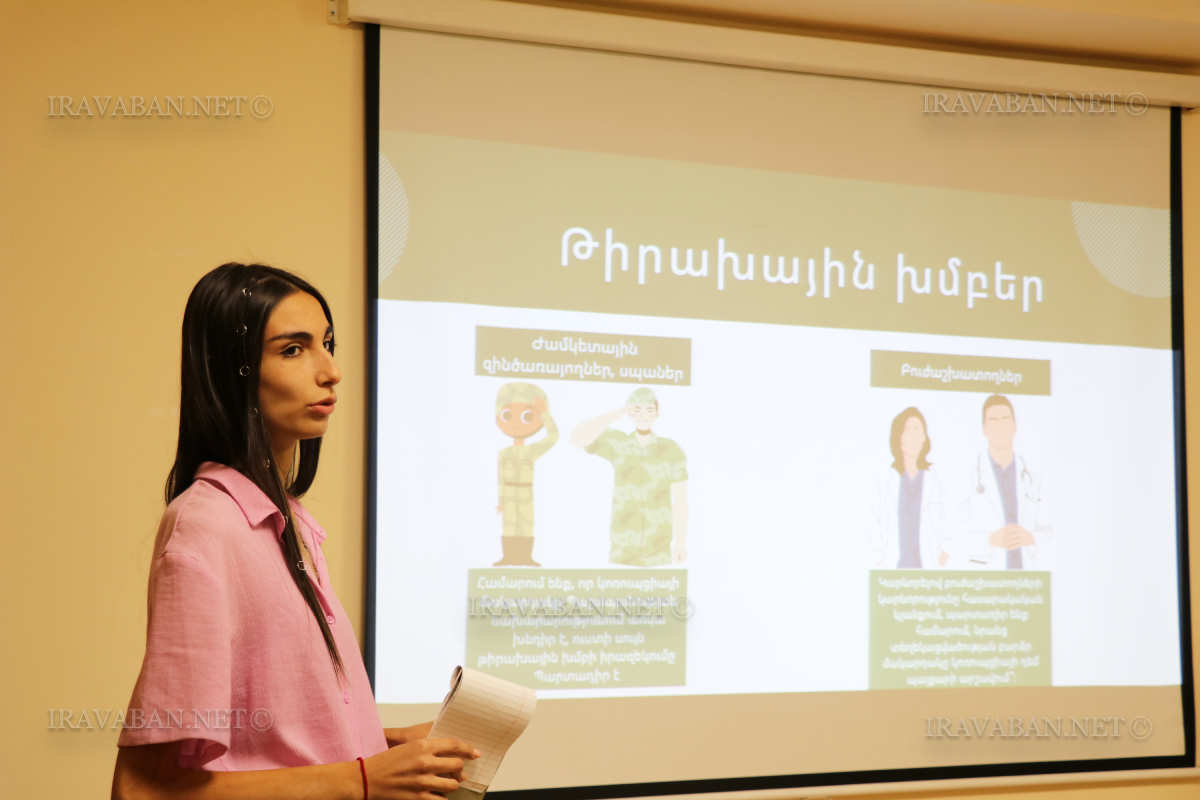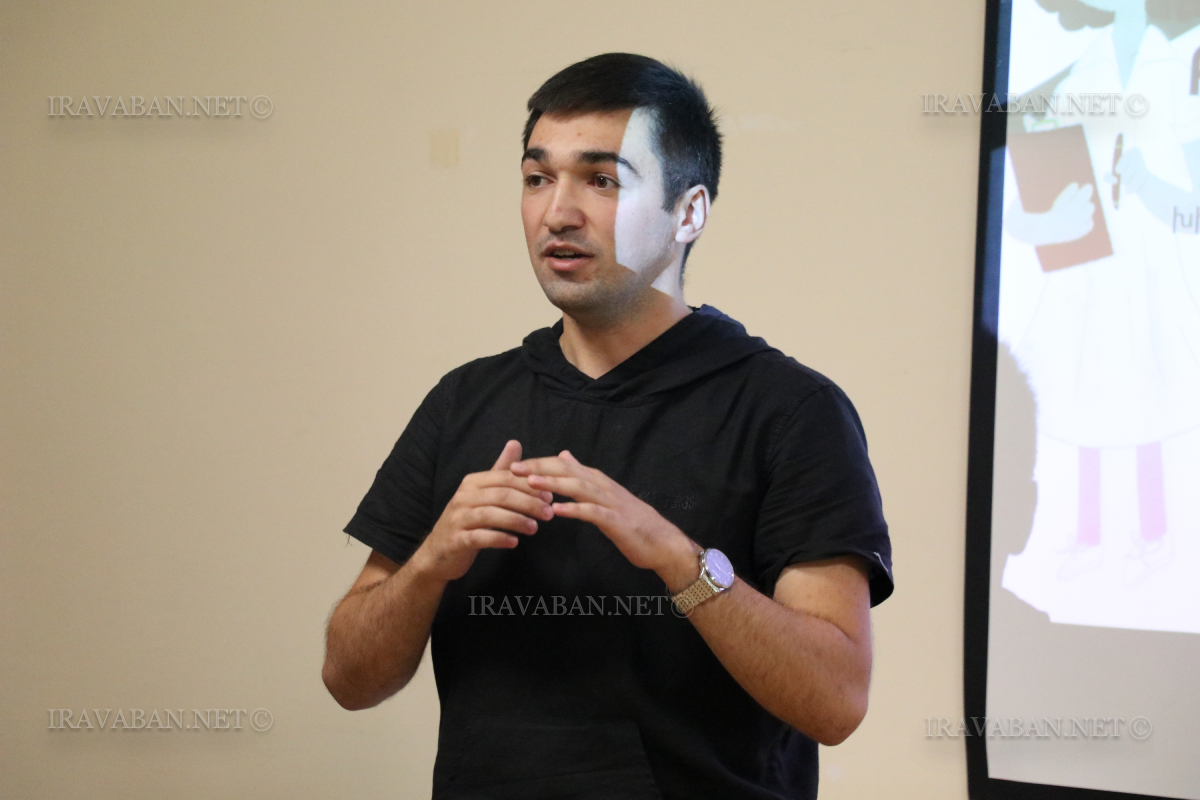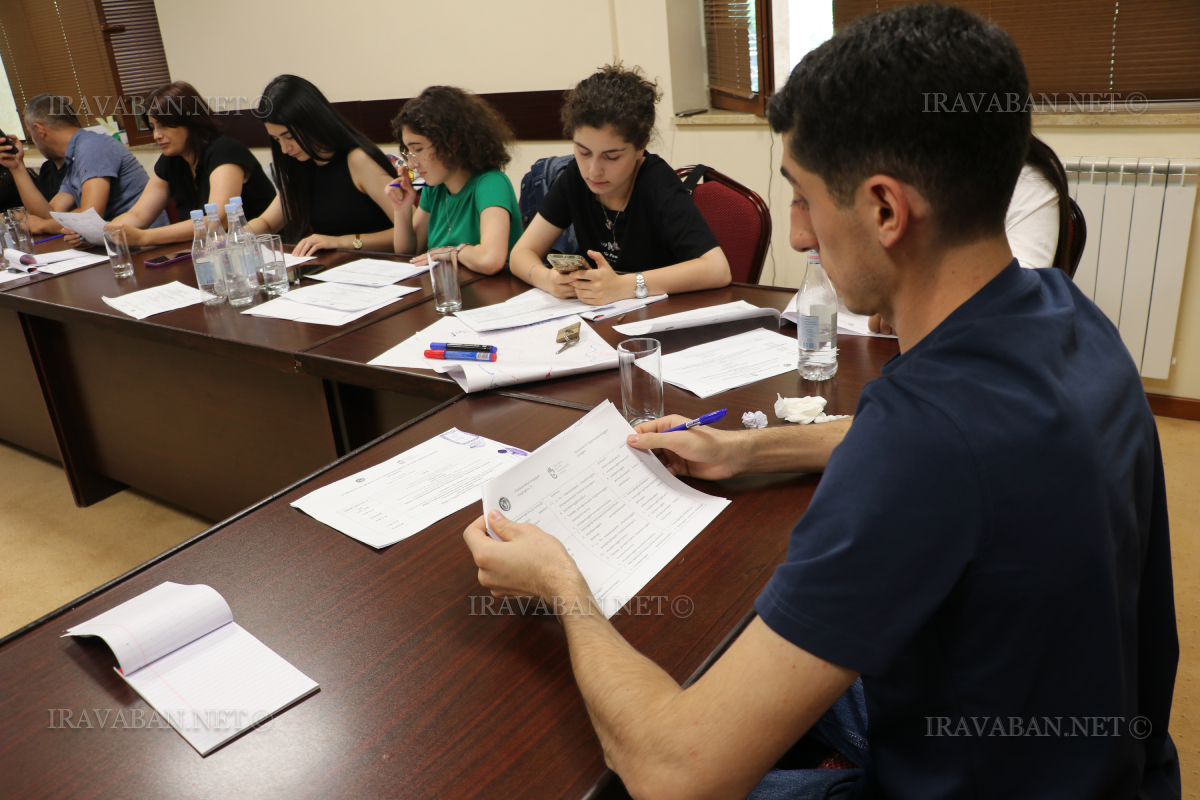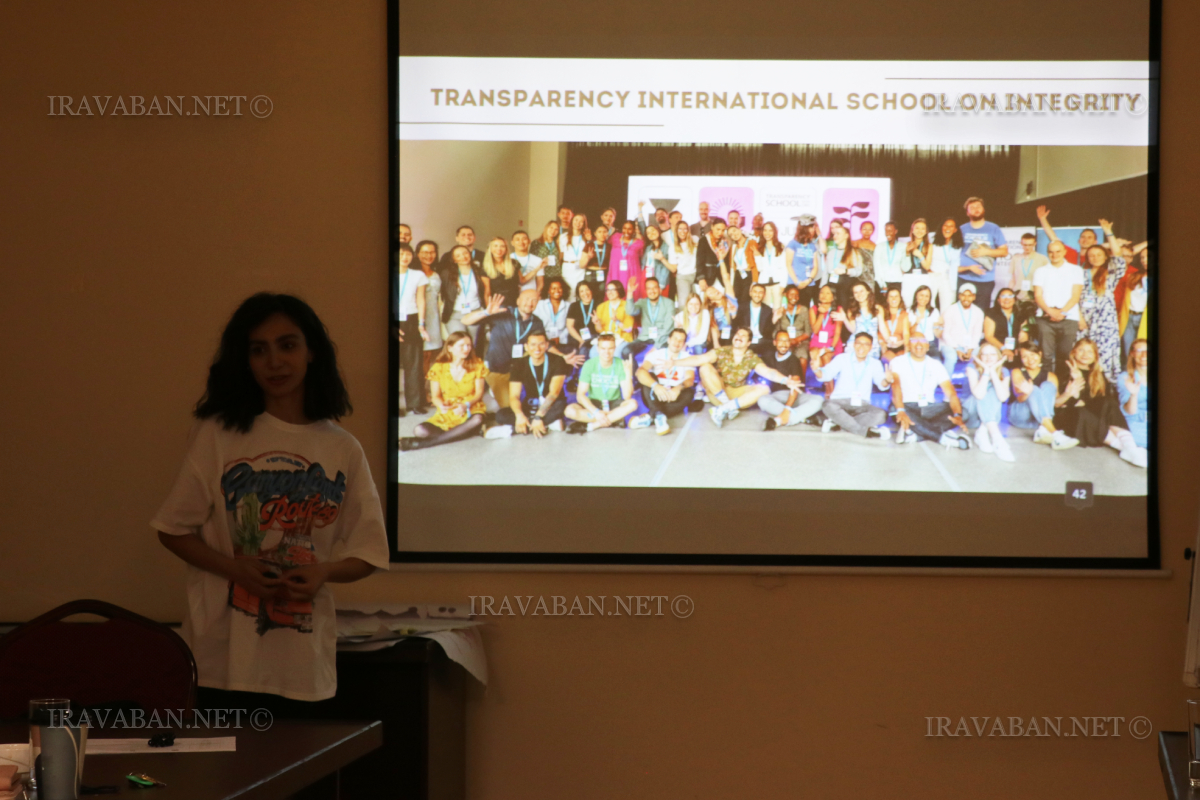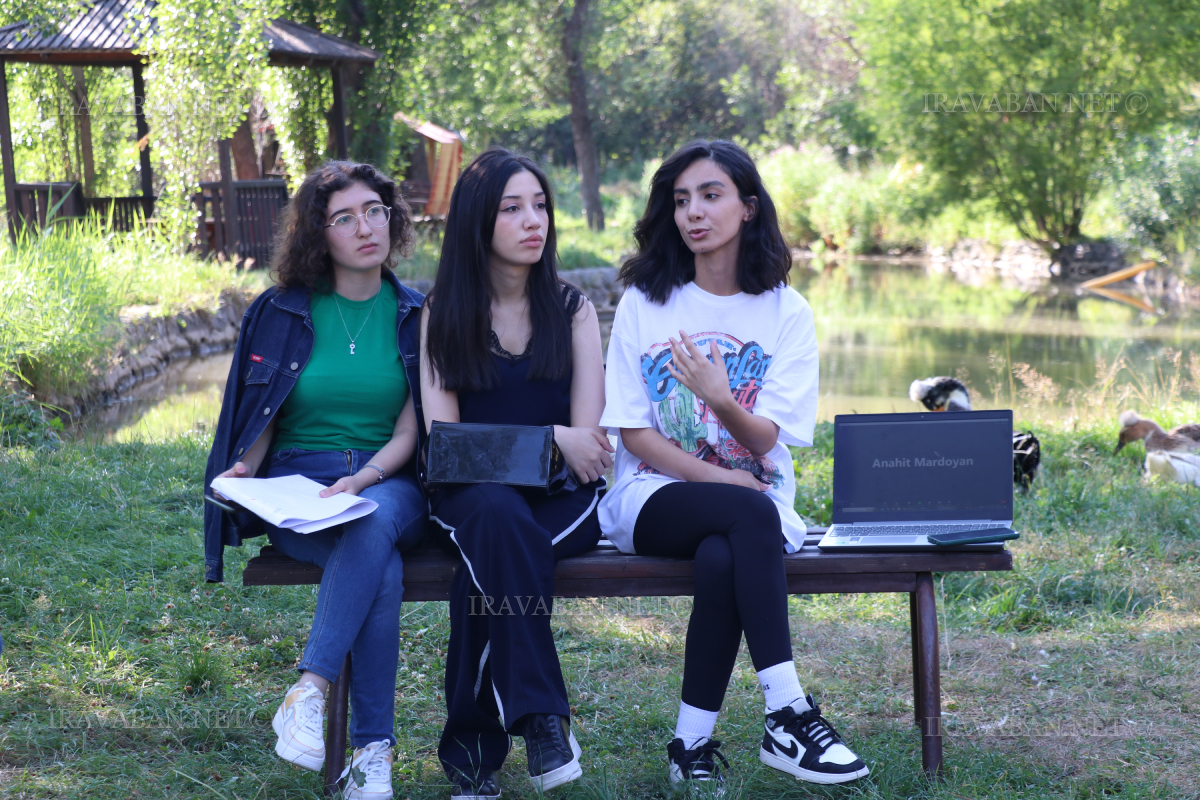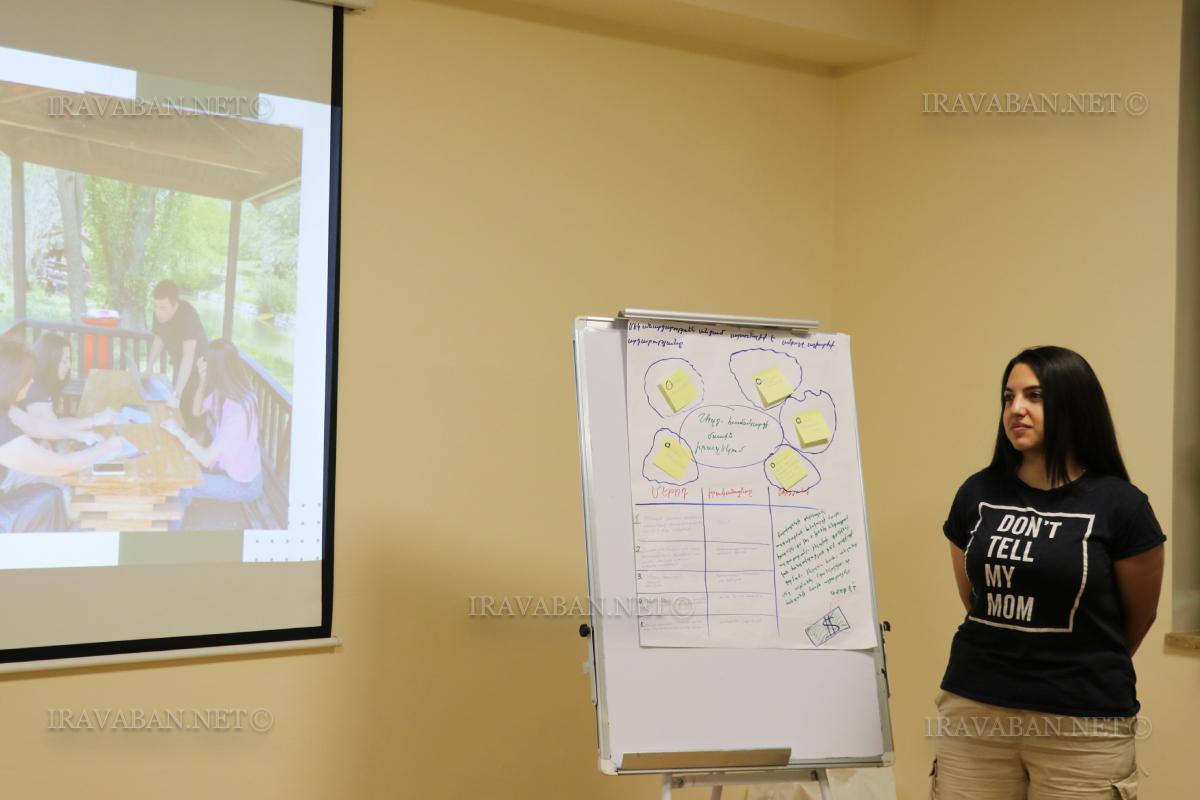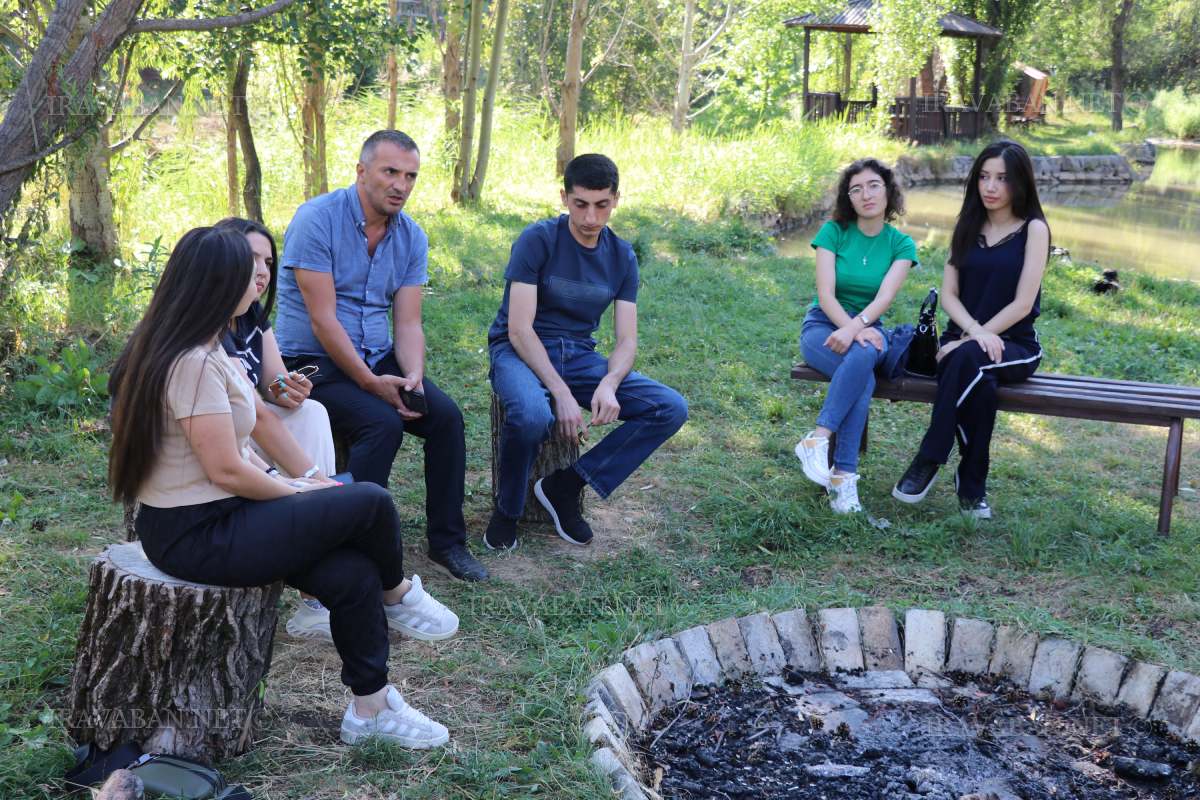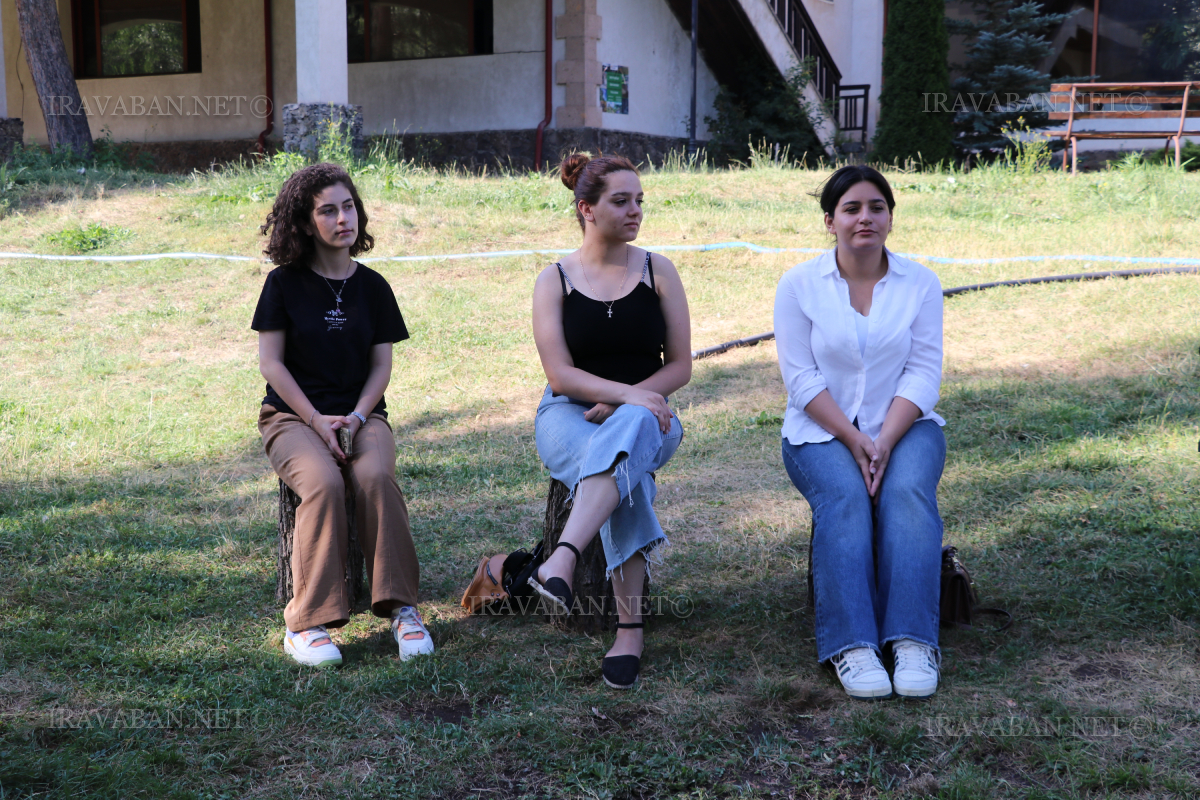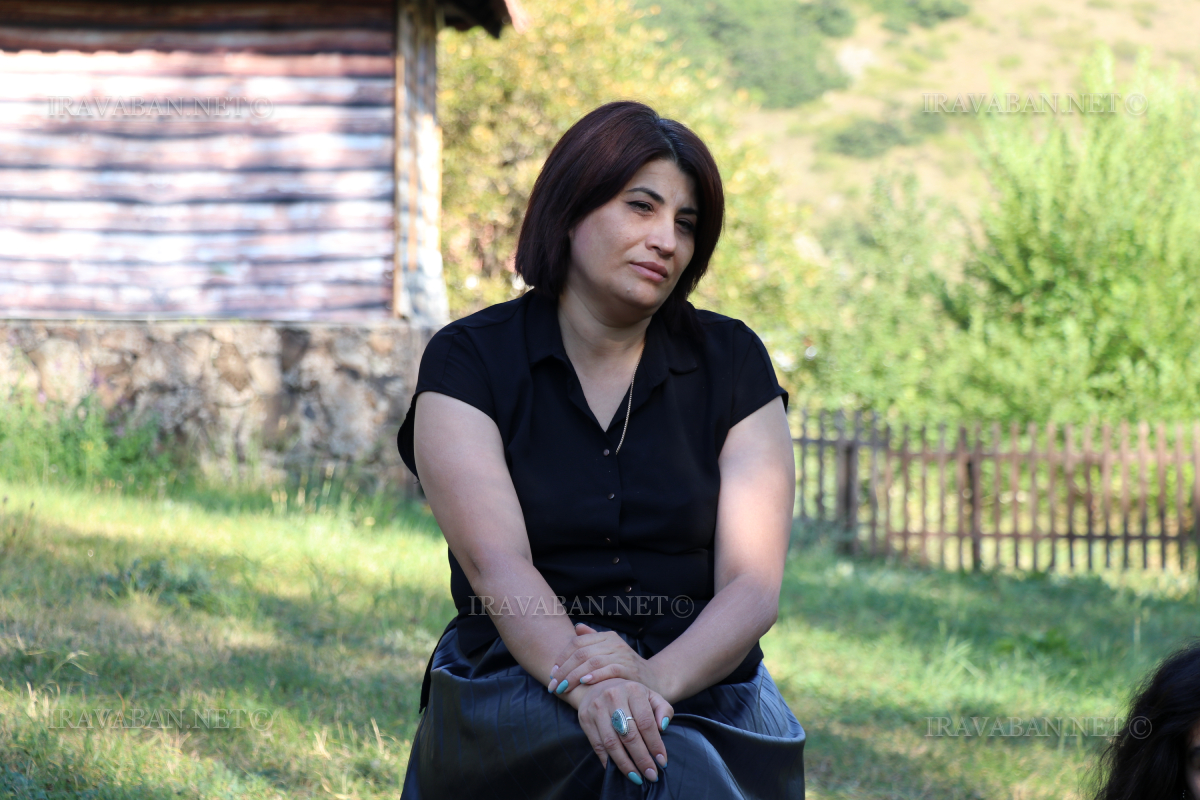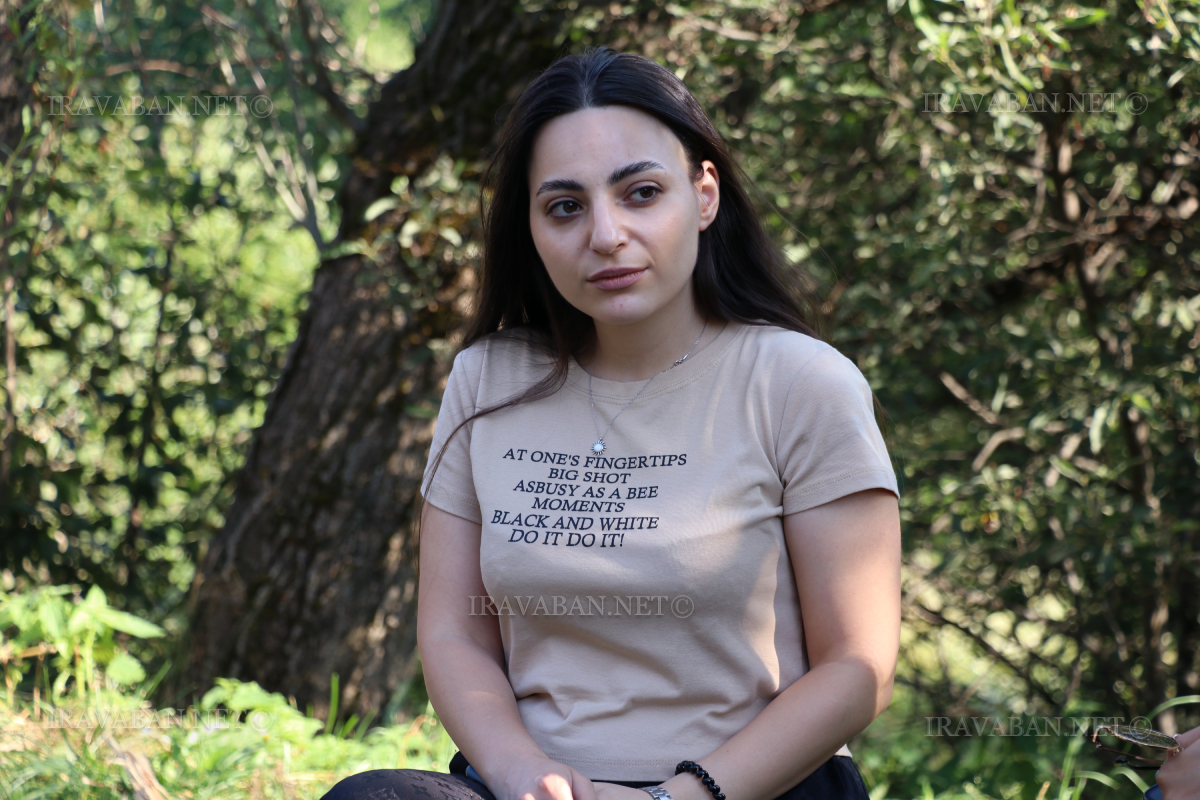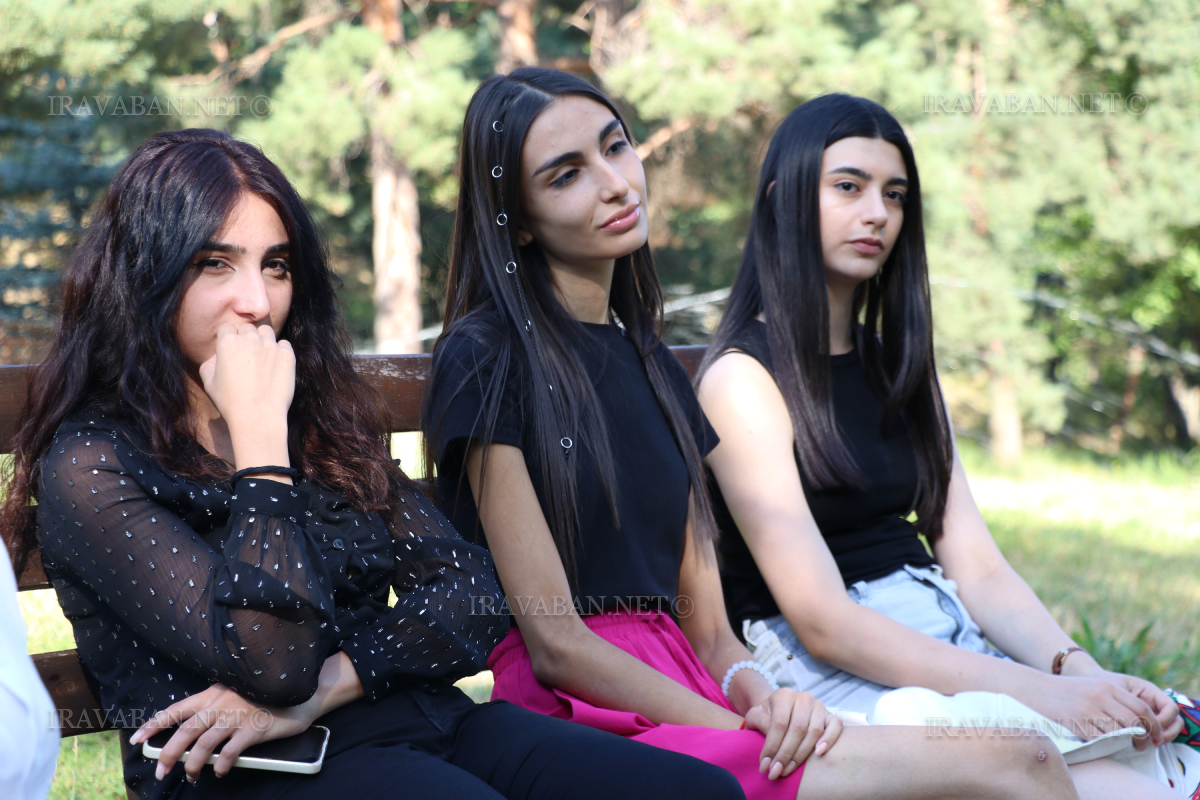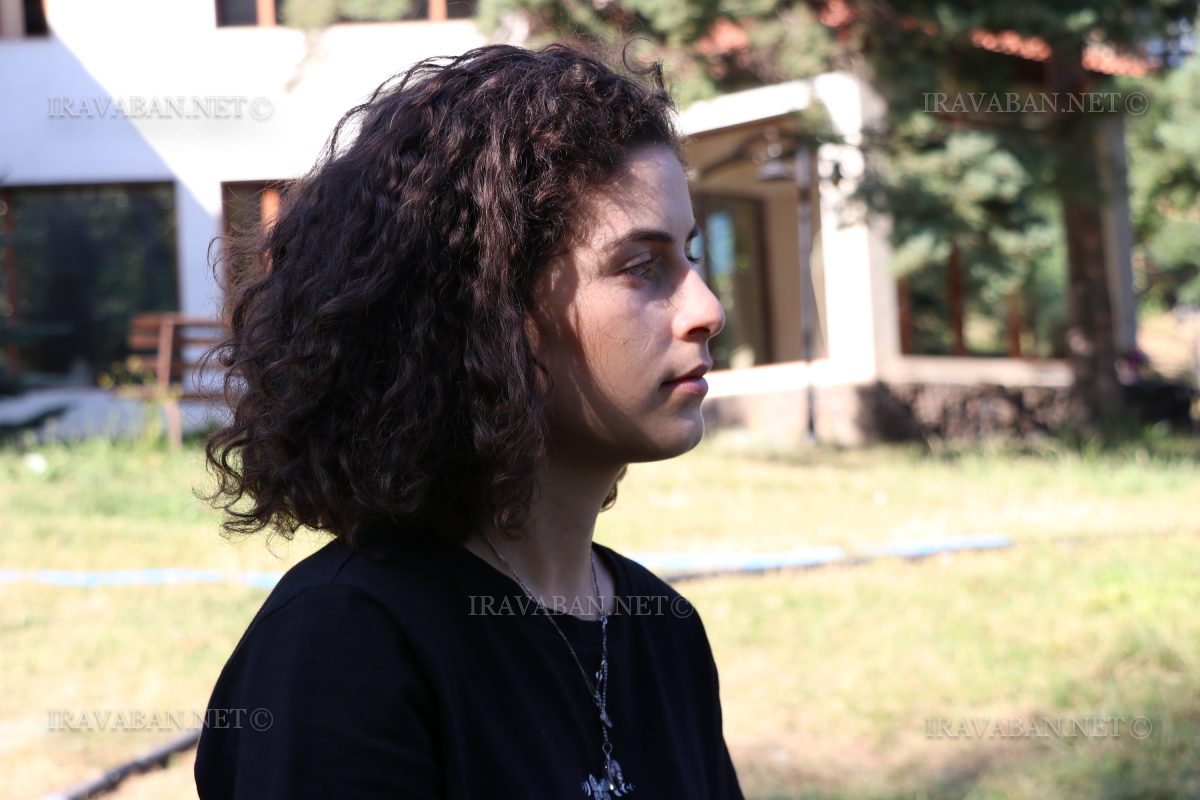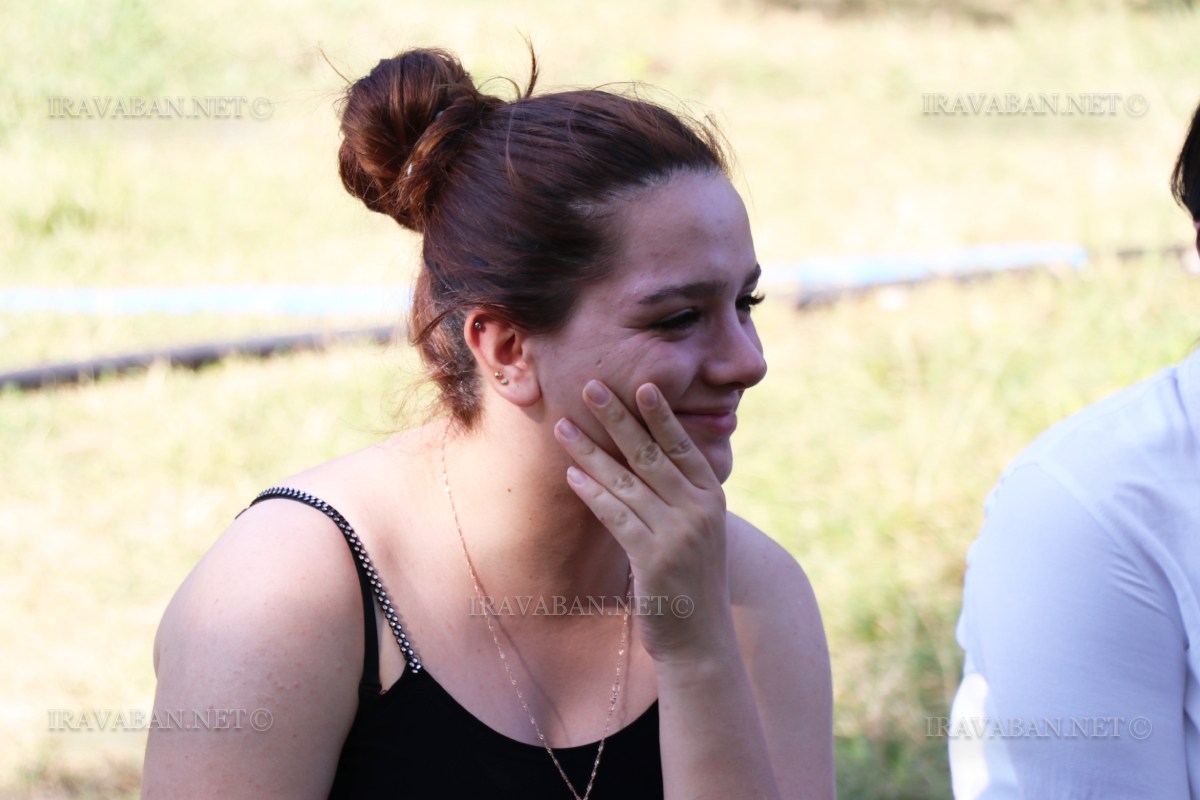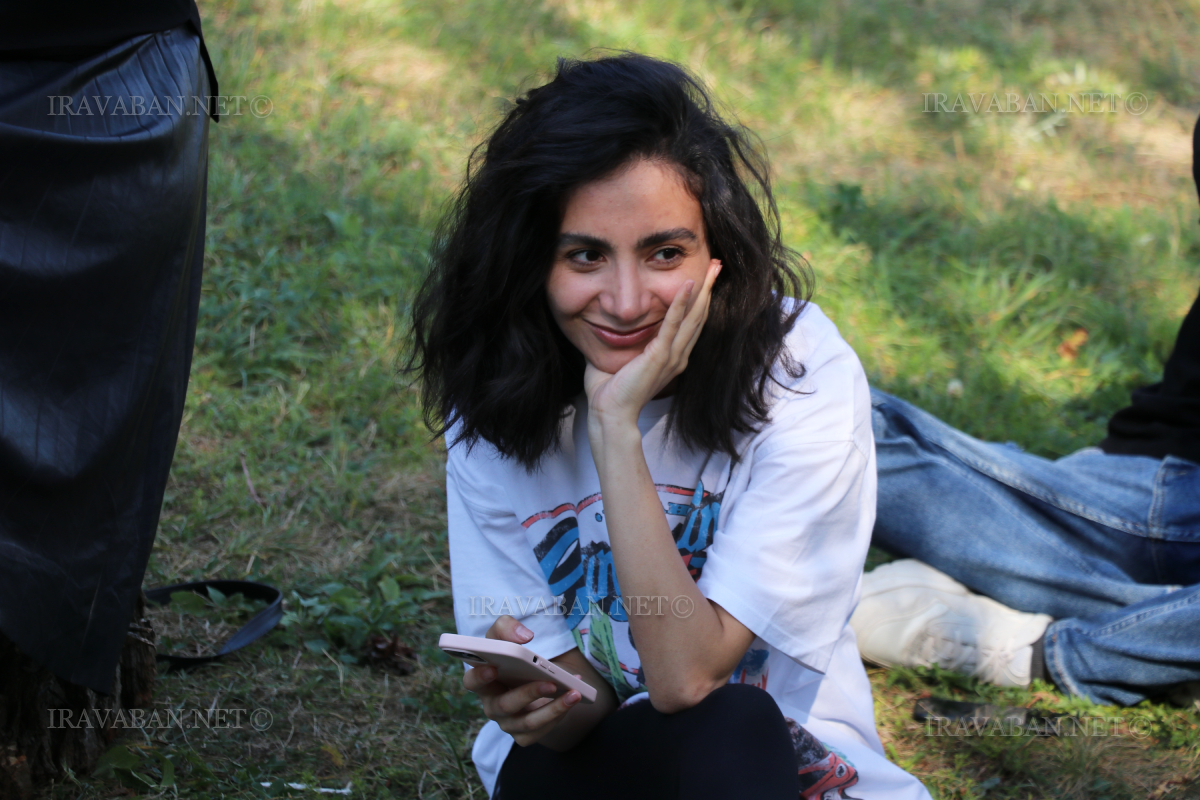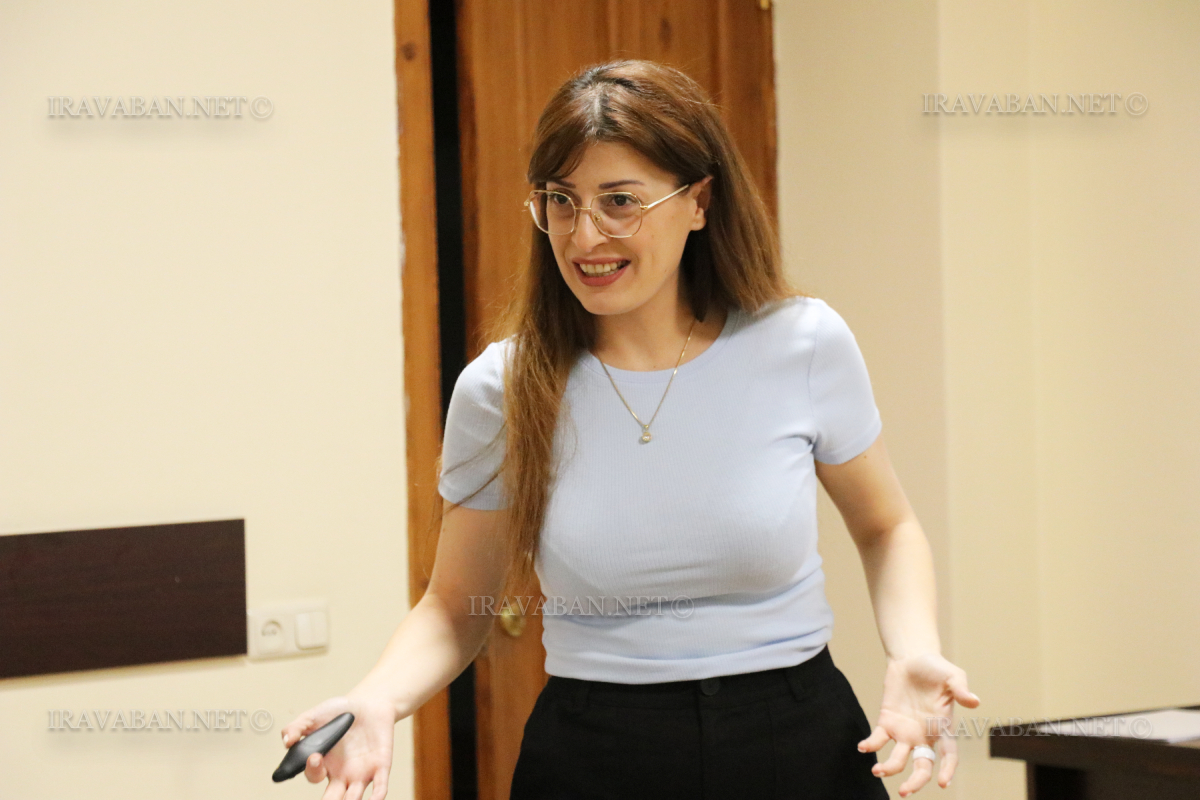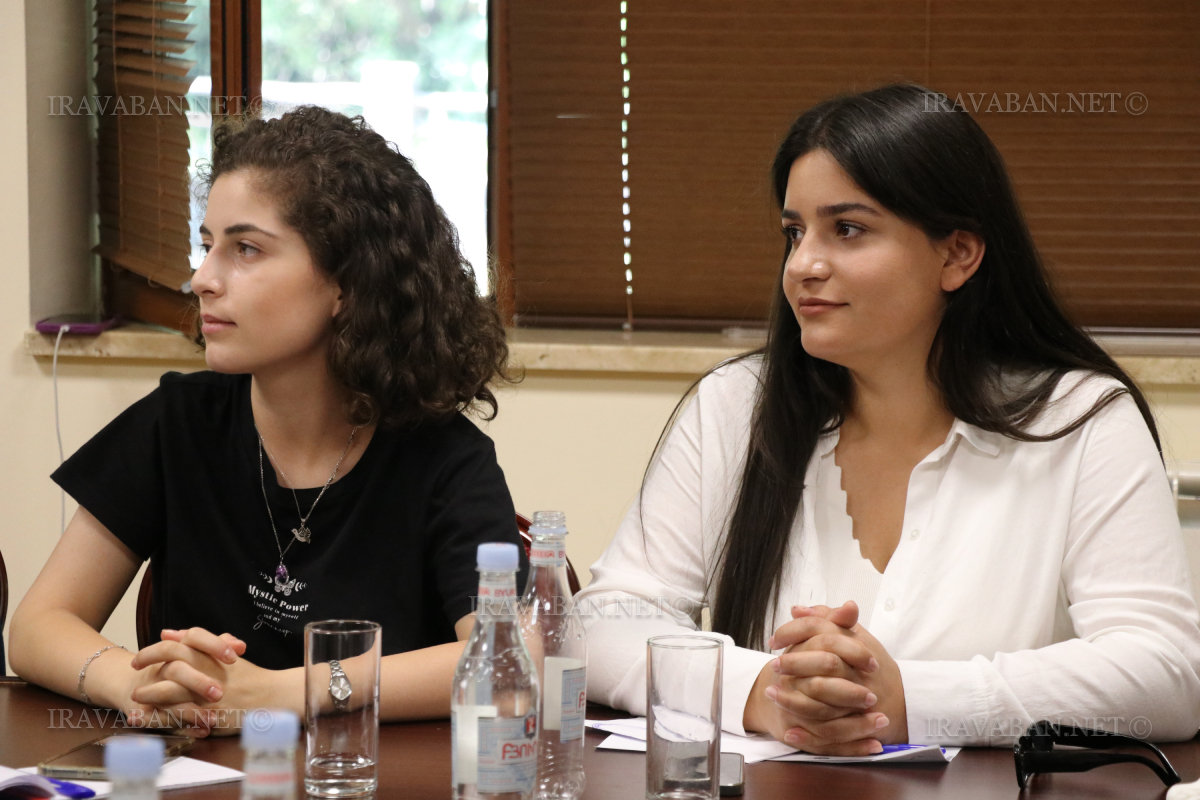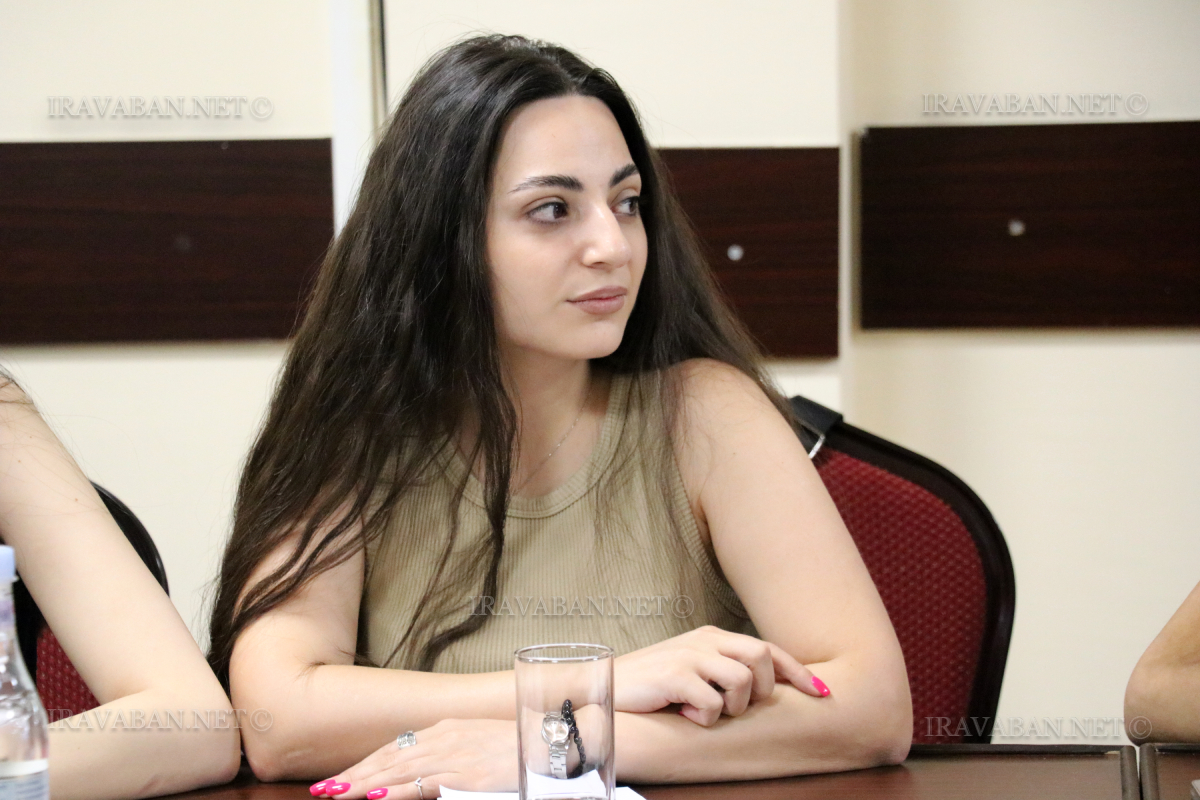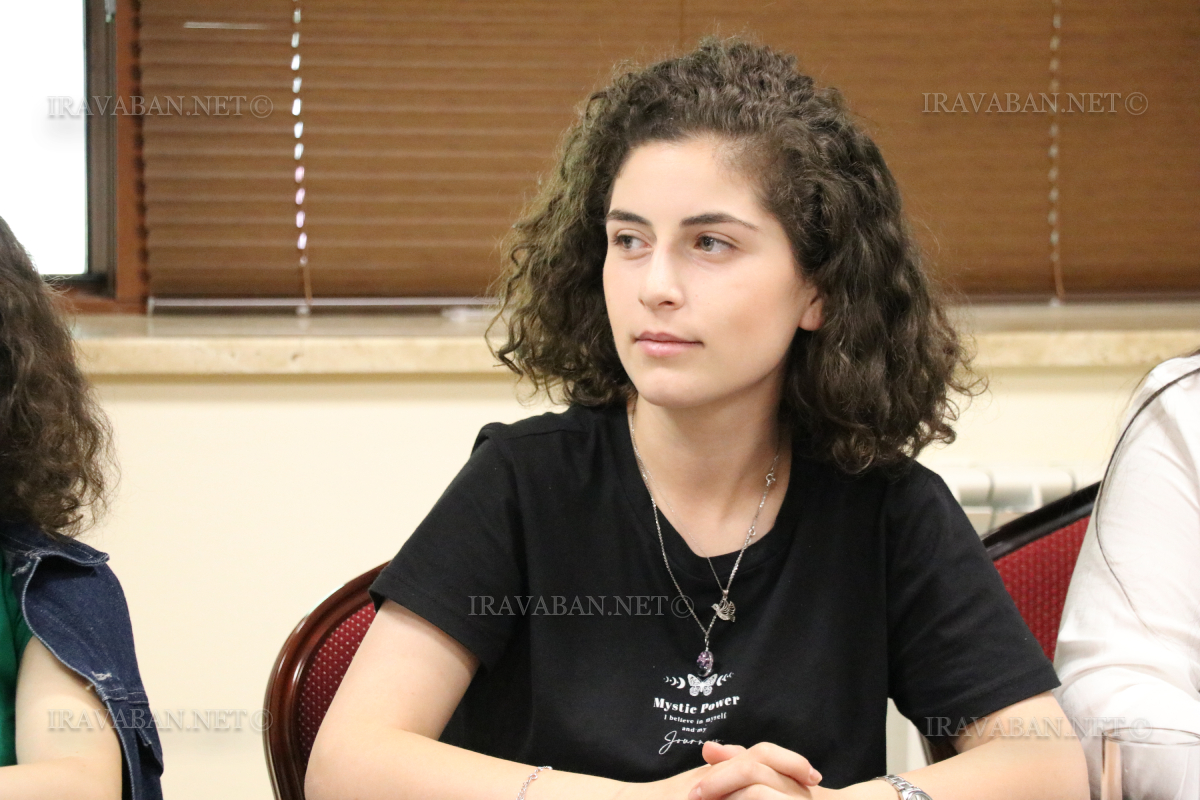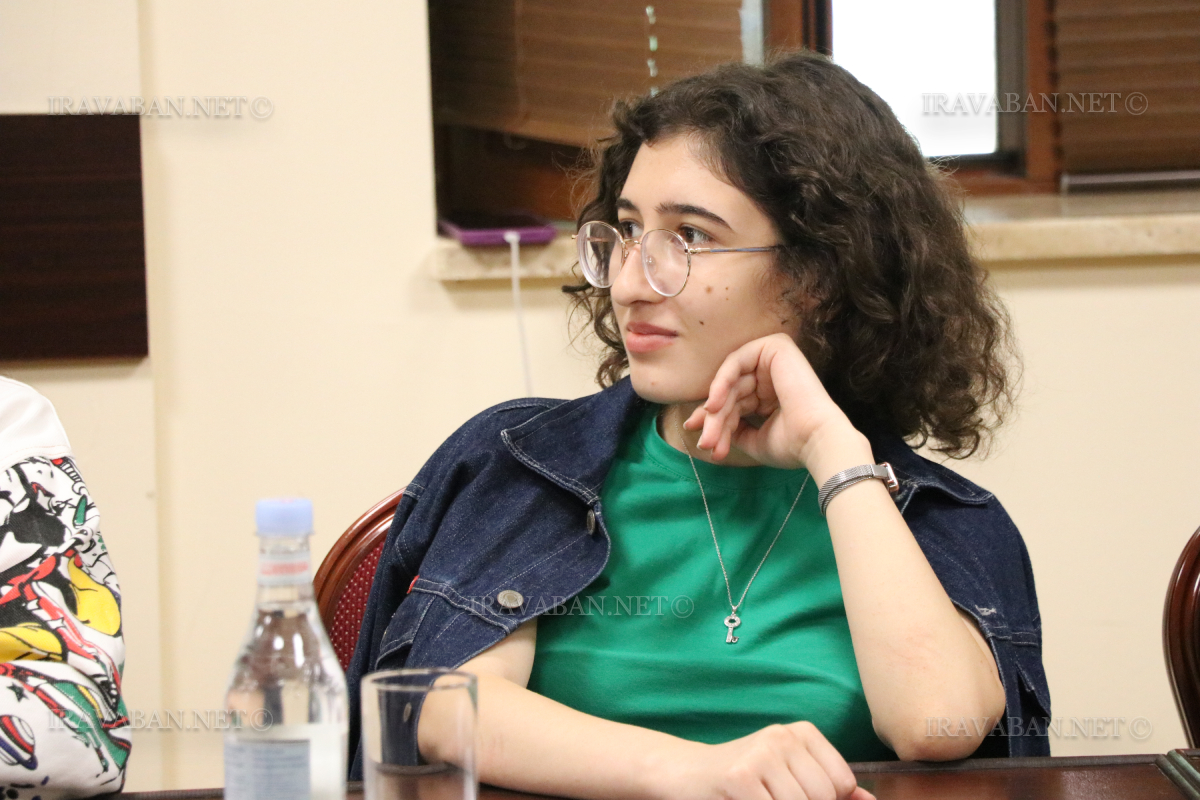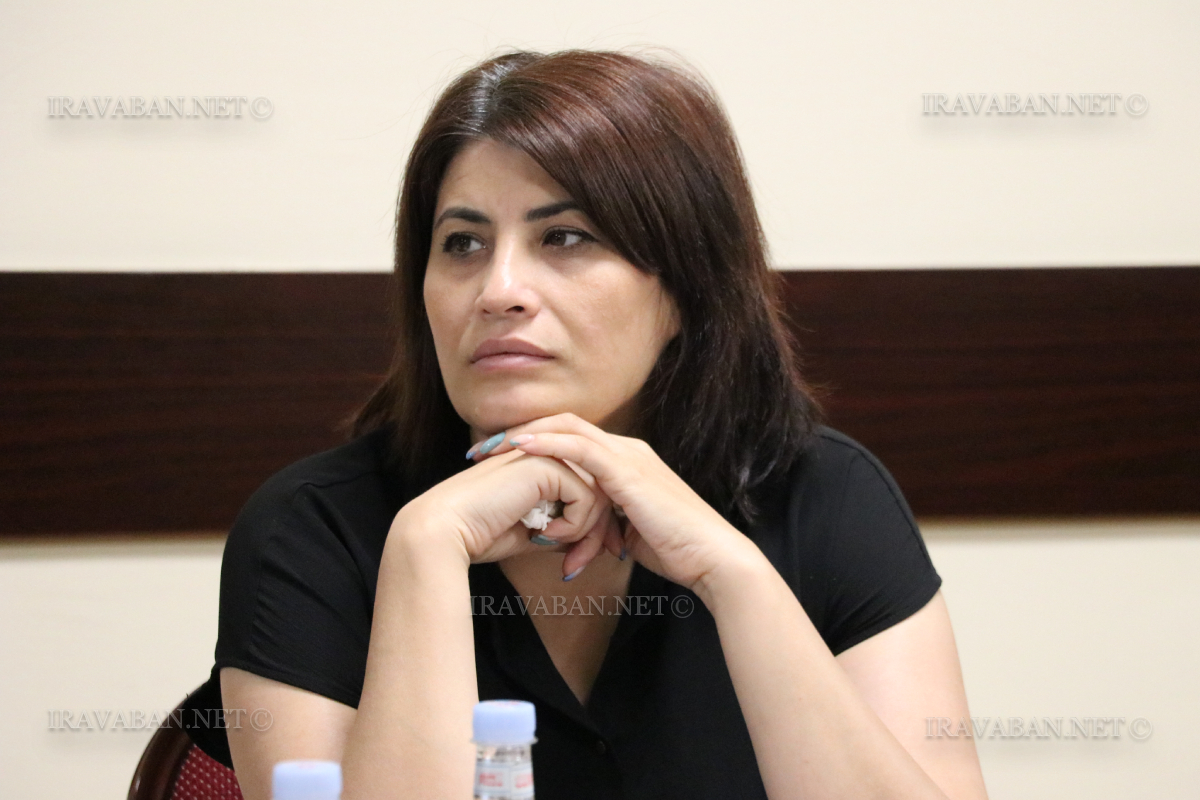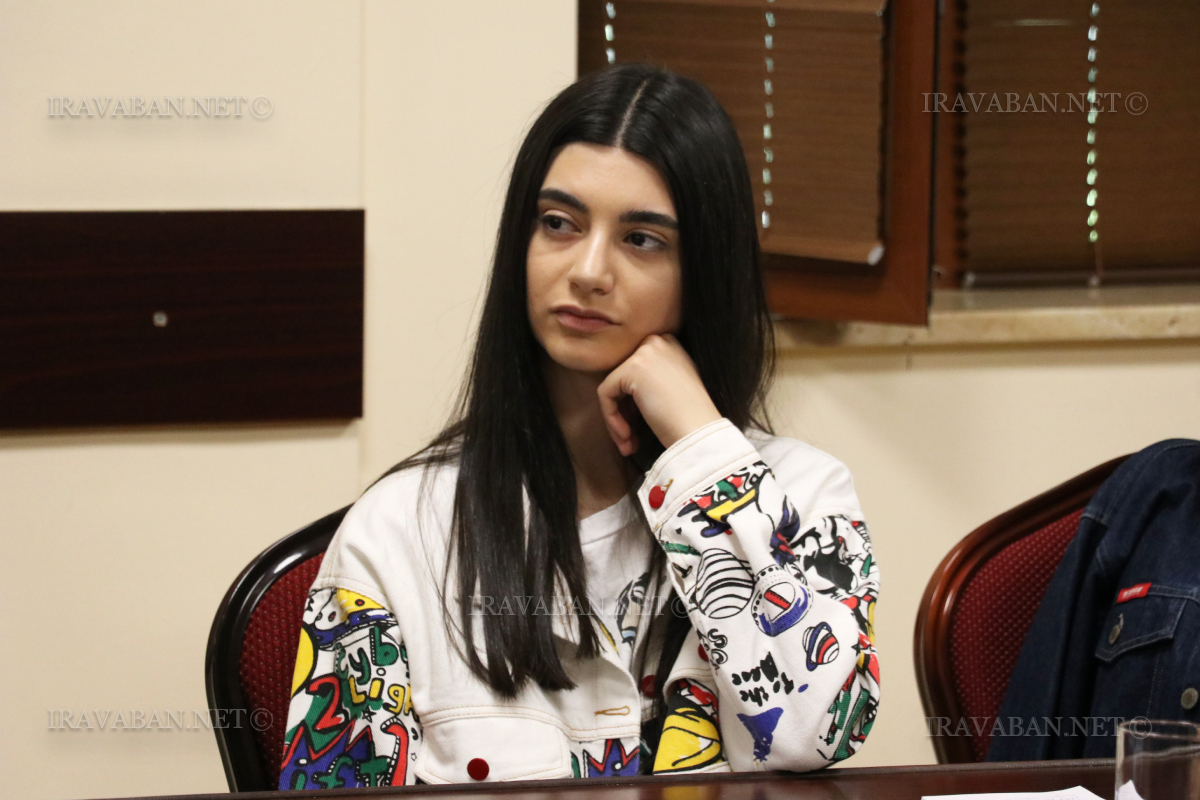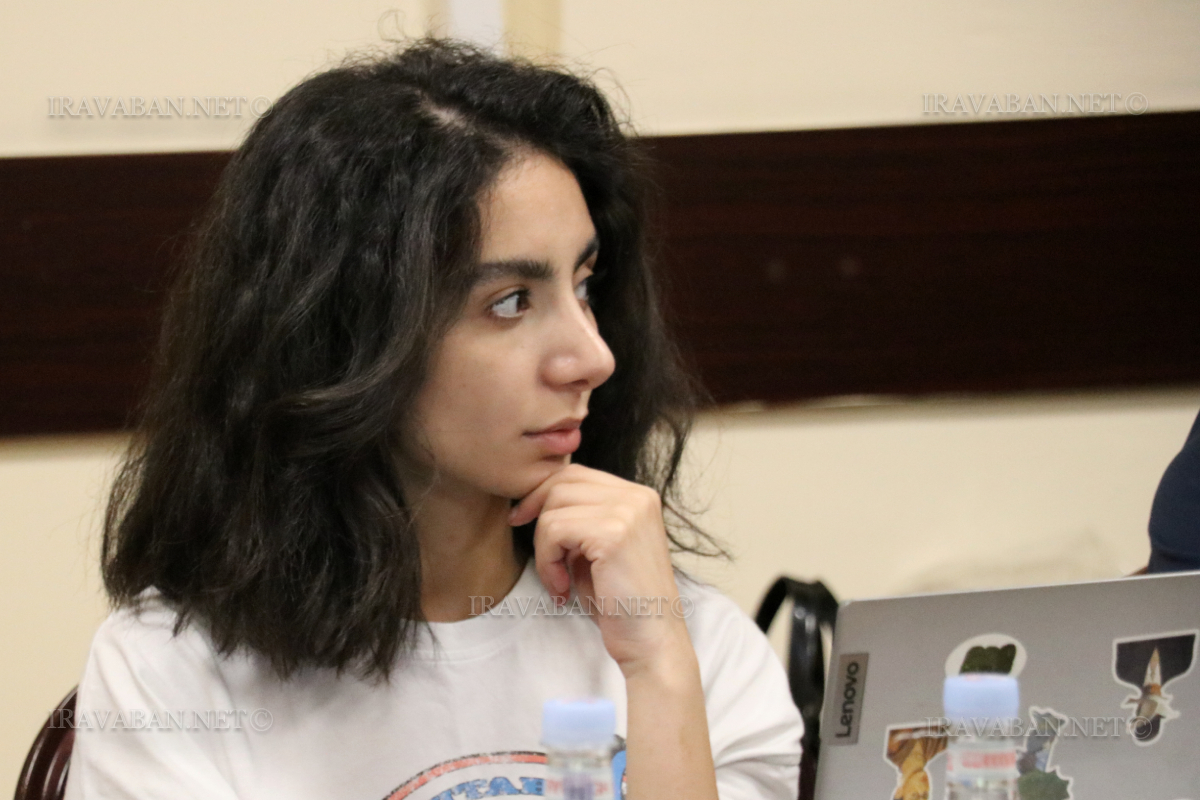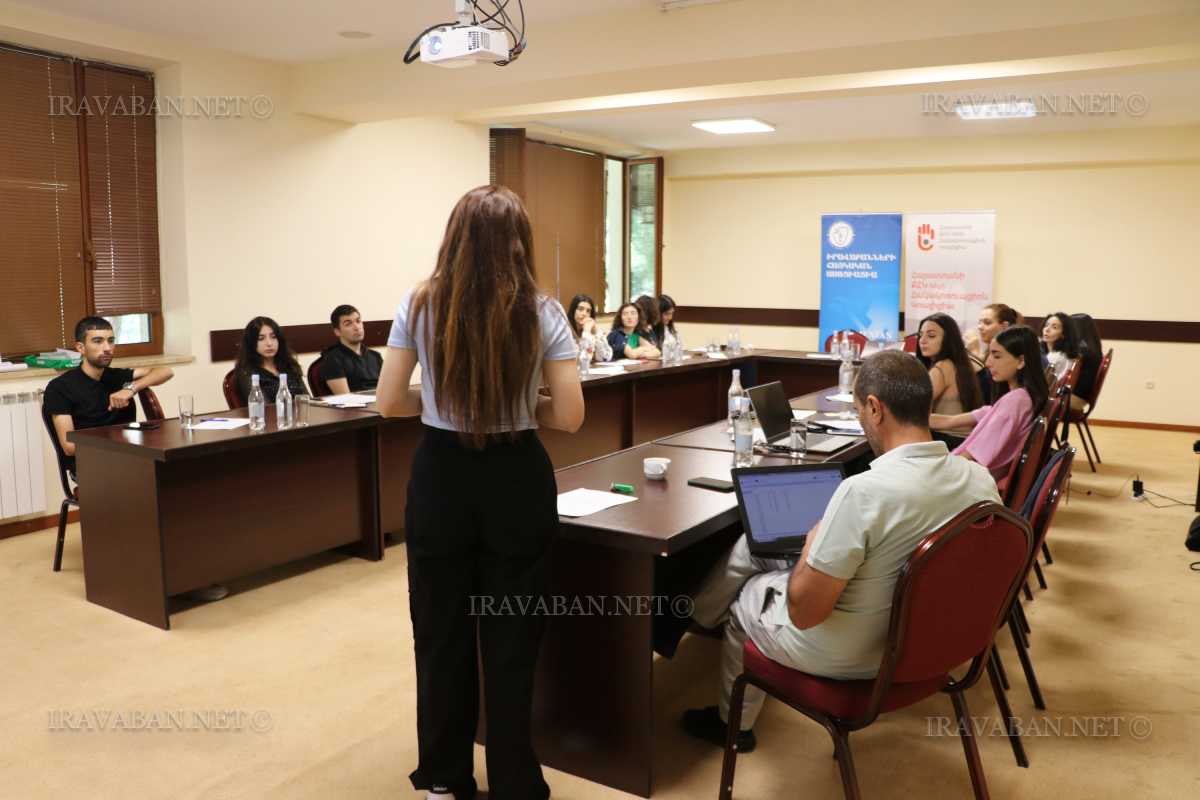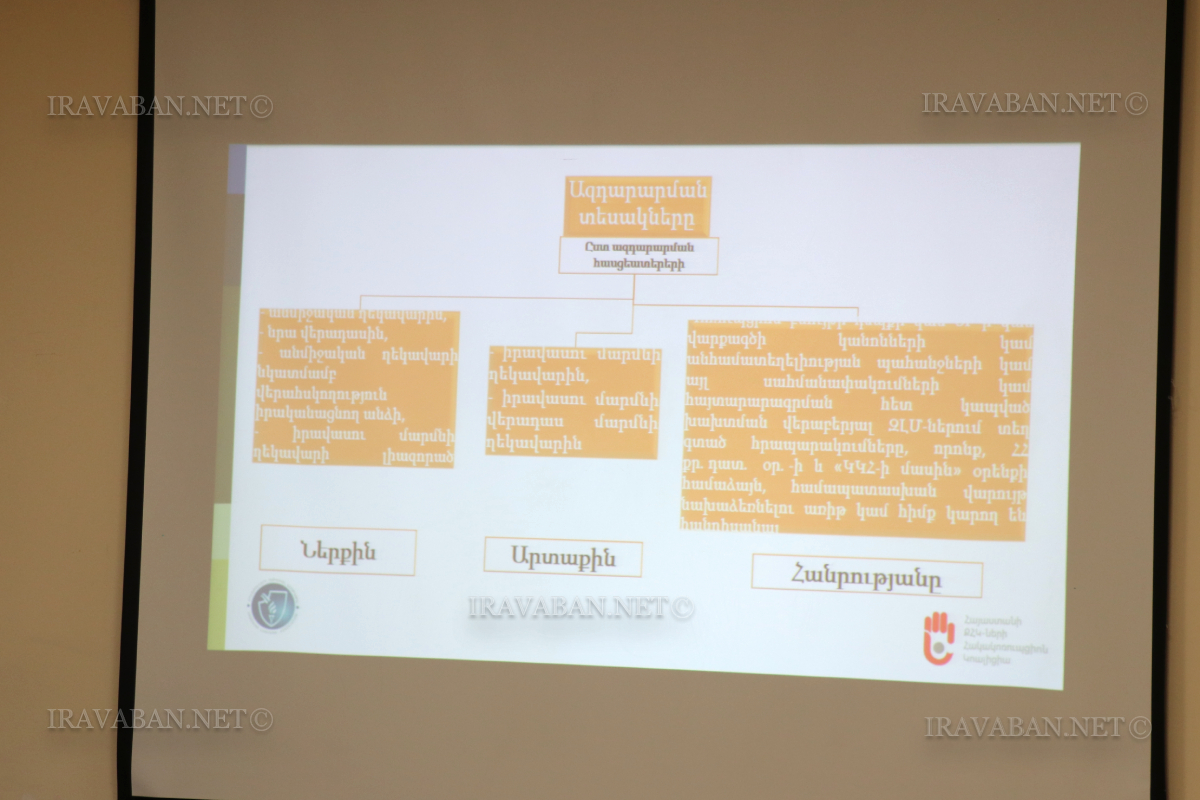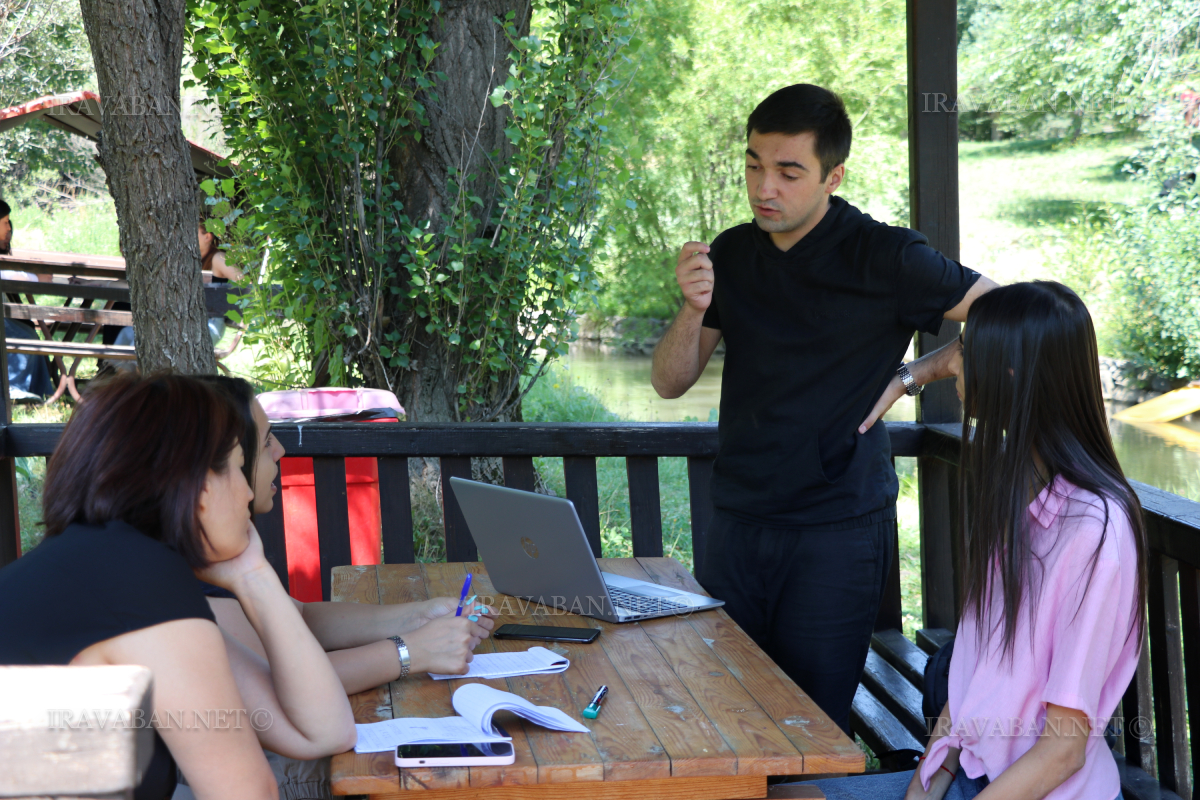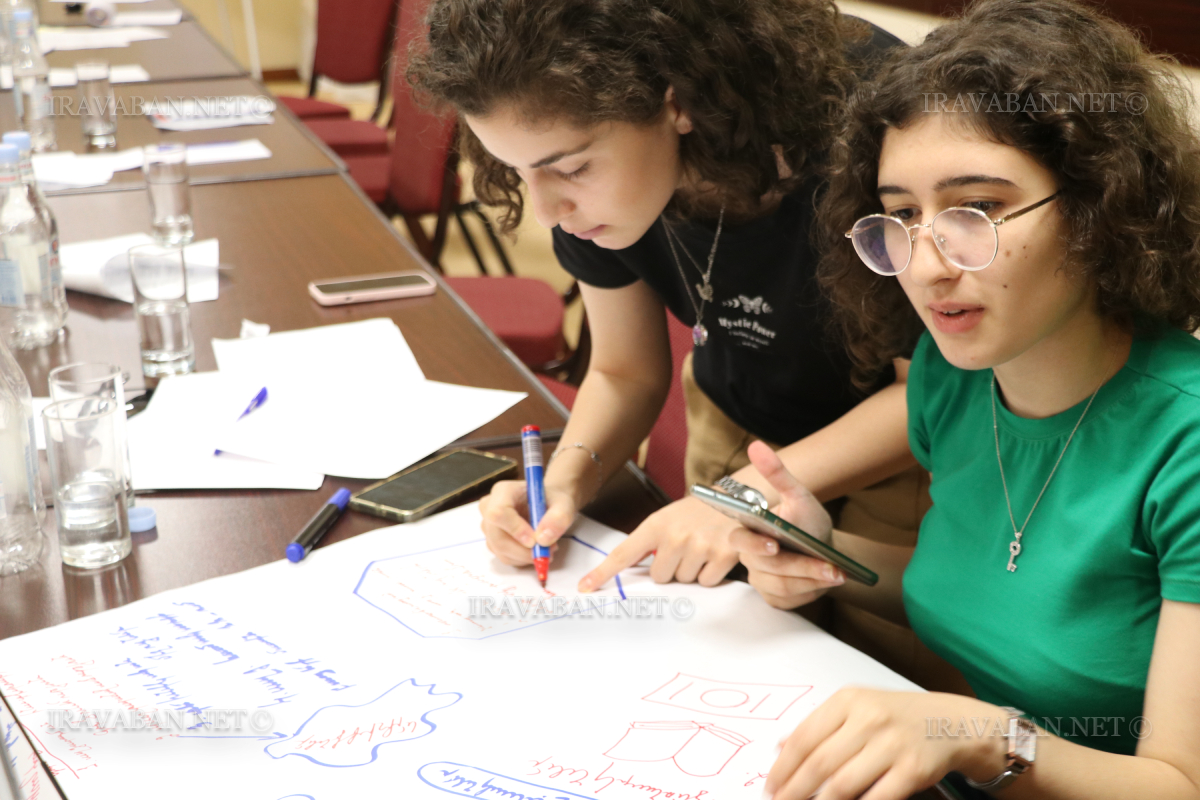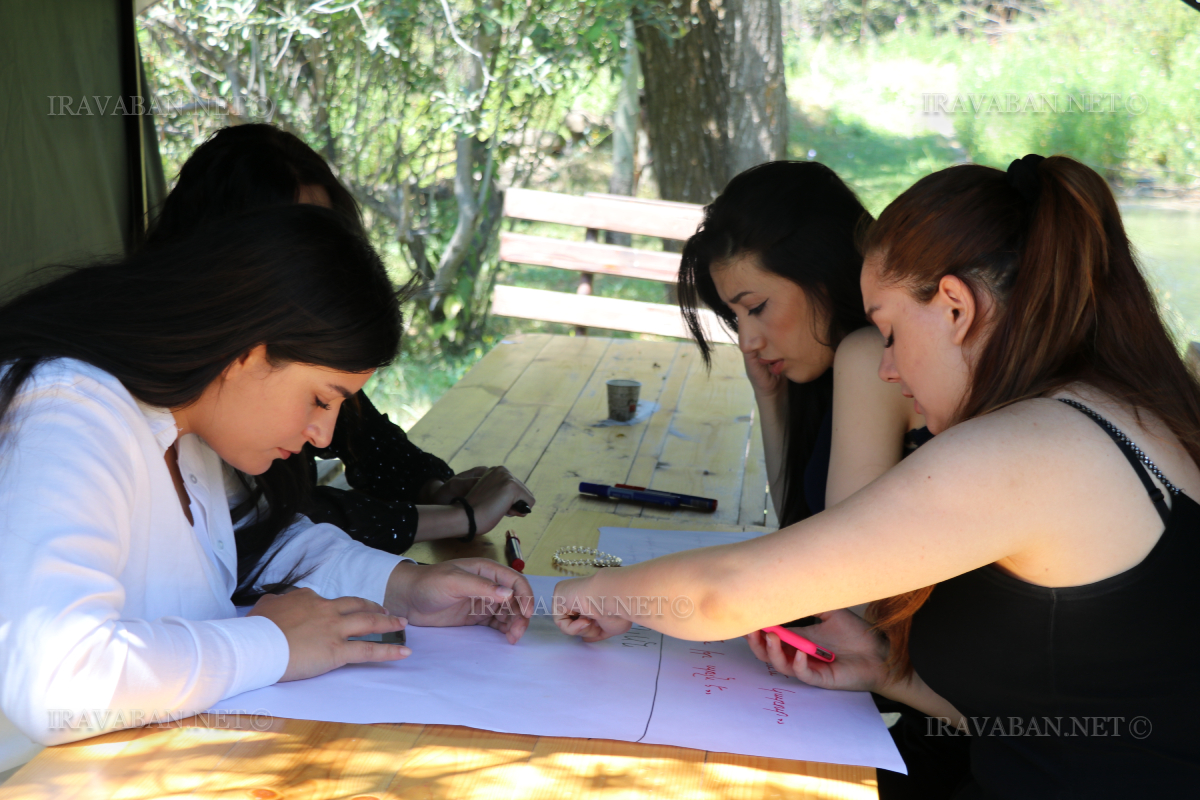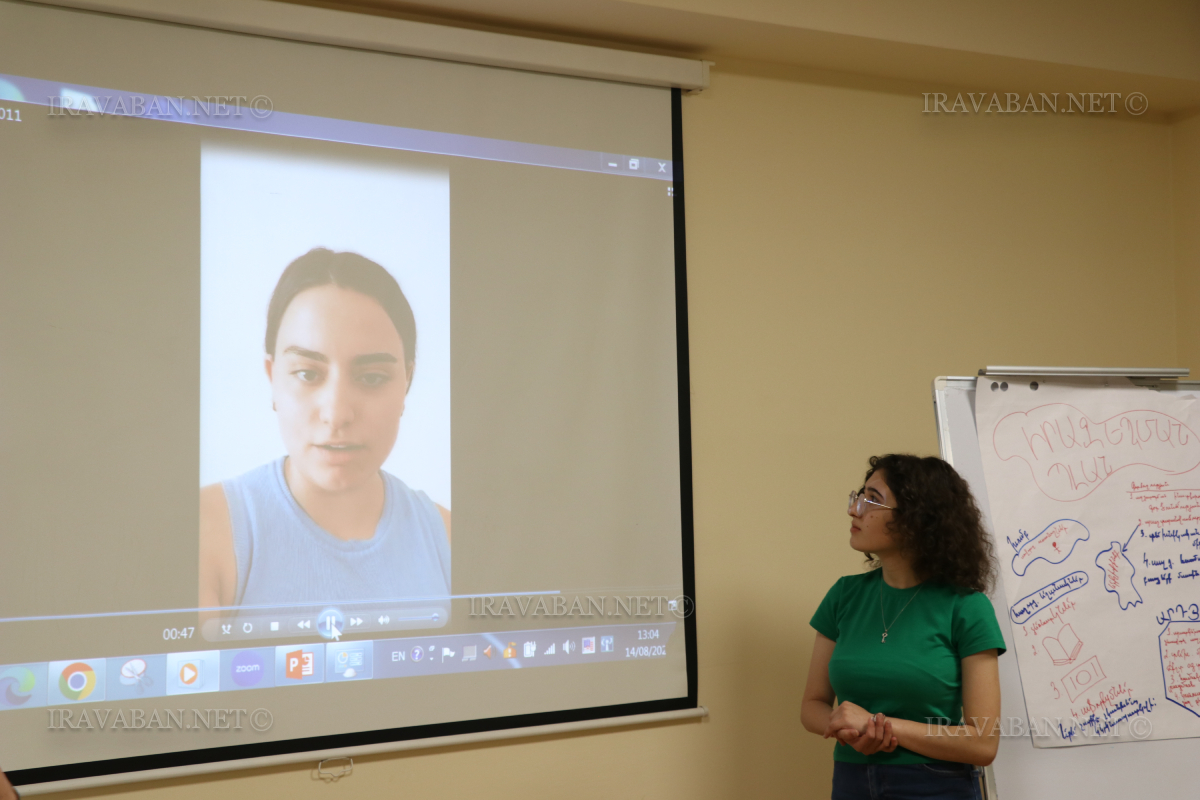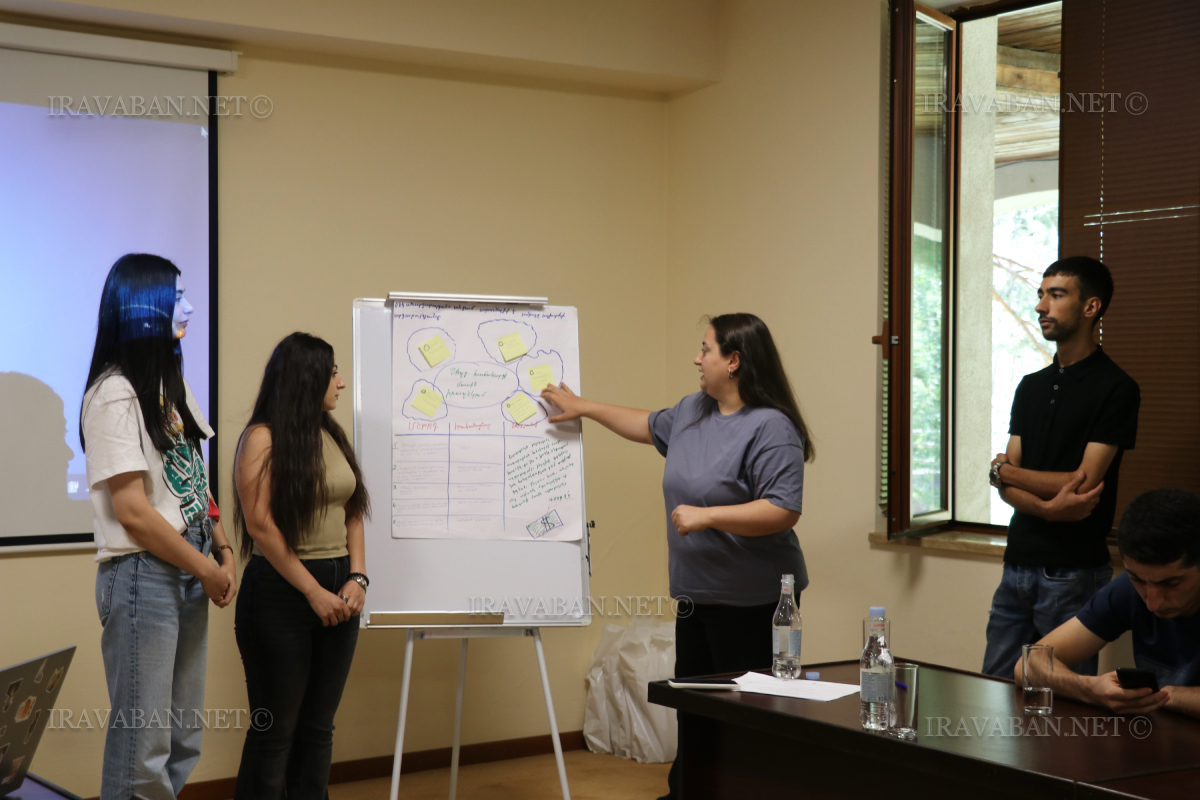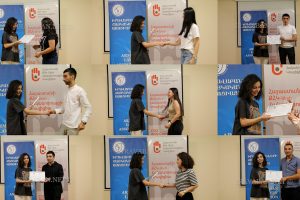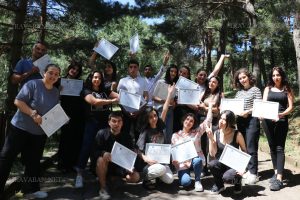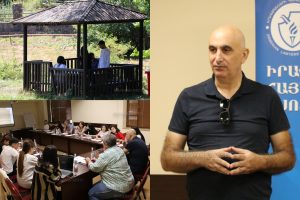On 14 August, the Outreach Training Phase of the Anti-Corruption School for Young Leaders, the 1st anti-corruption professional educational initiative operating in the Republic of Armenia continued its 2nd day’s work.
Anti-Corruption Expert Ms Syuzanna Soghomonyan and member of the Governing Board of CSO Anti-Corruption Coalition Mr. Arkadi Sahakyan presented the Whistle-Blowing System to the attention of the students.
Whistle-blower s can be both physical and legal entities. Syuzanna Soghomonyan also presented the methods of reporting. They are: open, closed and secret. Whistleblowing can be made internally and externally, as well as to the public.
“Internal whistleblowing begins with the whistle-blower submitting a report to his/her direct manager or his/her superior, or to another person exercising control over him or to a person authorized by the head of a competent body. The head of the competent body or his authorized person must take measures to protect the whistle-blower ,” Syuzanna Soghomyan said, adding that if the whistle-blower acted in bad faith while submitting the report, the protection of the whistle-blower ceases.
In case of external whistleblowing, it is given by the whistle-blower submitting a report to the competent authority.
If the whistle-blower did not provide consent to the disclosure of his/her personal data, the body is obliged to obtain the preliminary consent of the whistle-blower before sending the report to the relevant bodies. In this case, if the whistle-blower ‘s dishonest action contains features of a crime, then the Prosecutor General’s Office is informed about it.
Syuzanna Soghomonyan mentioned that if the reports submitted in the case of internal and external reports have not been processed, the whistle-blower can present the report through mass media. In this case, depending on the content of the report, the Corruption Prevention Commission or law enforcement agencies are obliged to process the report published in the mass media, initiate proceedings and maintain its confidentiality.
“The whistle-blower should feel that he is protected and not only he, but also his family members. Through the unified electronic platform, the whistle-blower can anonymously provide information about a case of corruption or a conflict of interest. The report may also refer to the violation of the code of conduct of the official, related to the declaration. In case of reporting through the unified platform, the state must guarantee the protection of the whistle-blower by ensuring his anonymity,” the Anti-Corruption Expert noted.
It is important to remember that the anonymity of the whistle-blower through the unified electronic platform is guaranteed by encrypting his/her Internet Protocol Address.
There are several electronic reporting platforms in Armenia. azdararir.am, bizprotect.am and employeeprotect.am.
Arkady Sahakyan talked about the 2nd one in more detail. The Bizprotect.am website provides an opportunity to report on problems hindering development of business, after which specialists study the application and quickly respond to it.
“The website also provides an opportunity to report the problem anonymously. The creators of the website, taking into account international standards and experience, took care so that no one, even the law enforcement officers, could find the author of the report,” he noted and presented in detail the steps to submit the report through the website.
Arkady Sahakyan emphasized: the website was created to be next to the business.
“It is very important that with this website we were able to provide a certain transparency in the work with our state bodies, because the website enabled business representatives to quickly establish contact and report every violation,” he noted.
Further, within the framework of practical work, Syuzanna Soghomonyan proposed to design a public awareness plan for the whistle-blowing system and prepare an informative video with one of the actions of that plan. The students were divided into 4 groups and presented their works.
The groups came up with new recommendations, generated new ideas that can contribute to the promotion of a more effective fight against corruption in Armenia and contribute to the development of the whistleblowing system.
At the end, Arkady Sahakyan urged the students of the School to be strong, not to deviate from the intended path and spare no effort in the fight against one of the biggest evils – the corruption.
The Anti-Corruption School for Young Leaders was founded by Karen Zadoyan, the President of the Armenian Lawyers’ Association, a member of the Anti-Corruption Policy Council. “The Armenian Lawyers’ Association” NGO is organizing the Anti-Corruption School for Young Leaders in cooperation with the CSO Anti-Corruption Coalition of Armenia.
The information partner of the Anti-Corruption School for Young Leaders is Iravaban.net, independent professional news website.

